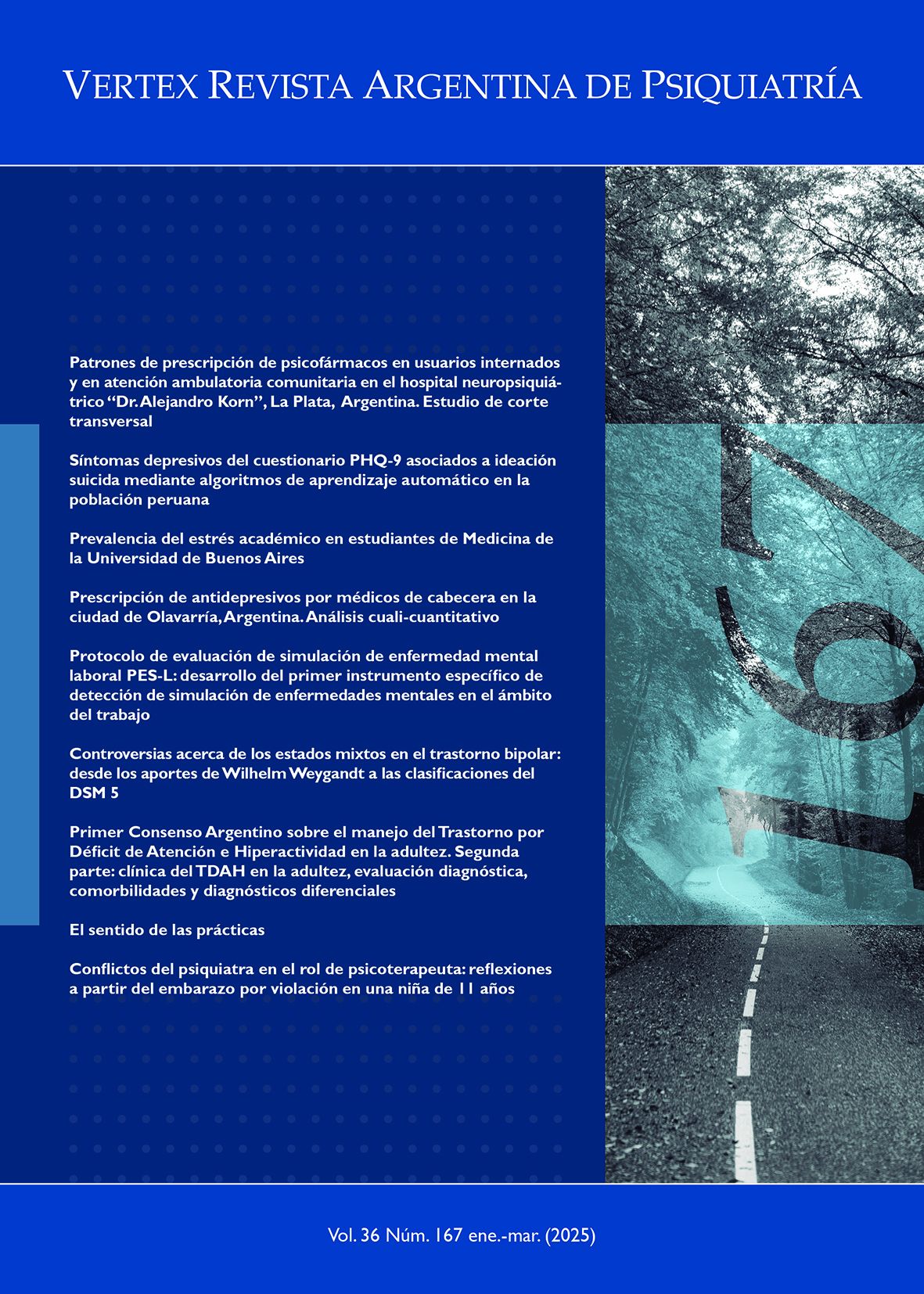Protocol for the Assessment of Mental Illness Malingering in the Workplace (PES-L): Development of the First Specific Instrument for Detecting Mental Illness Malingering in the Workplace Setting
DOI:
https://doi.org/10.53680/vertex.v36i167.800Keywords:
malingering detection, psychiatric leave, work absenteeismAbstract
Objective: This study aimed to develop the first psychometric instrument for assessing mental illness malingering in the workplace. Method: Pearson's bivariate correlations were calculated between the dimensions of the PES-L and the SIMS and SCL-90-R tests. Sensitivity, specificity, and potential cutoff scores were determined using independent samples t-test and Cohen's d to determine effect size. ROC curve analysis was conducted to differentiate between two groups based on the total scale score. Results: Results revealed an area under the curve of 0.81 (p = 0.000, 95 % CI: 0.73 - 0.89). A cutoff score of 14 correctly classified 72.16 % of potential simulator individuals. Conclusion: The PES-L has shown potential as a psychometric instrument for detecting malingering in cases of mental health-related work absences.
Downloads
Downloads
Published
How to Cite
Issue
Section
License
Copyright (c) 2025 Matías Salvador Bertone, Alejandro Elman, Gabriela Kardos, Joaquín López Reguiera, Ulises Loskin, Miguel Vallejos, Cintia Spitzer, Jorge Mauricio Cuartas Arías

This work is licensed under a Creative Commons Attribution-NonCommercial-NoDerivatives 4.0 International License.





